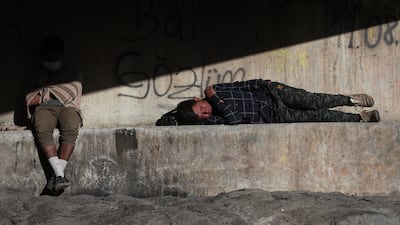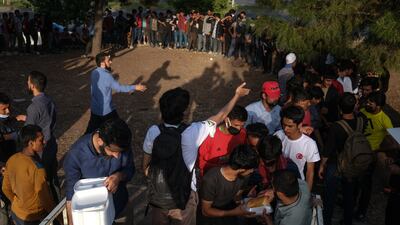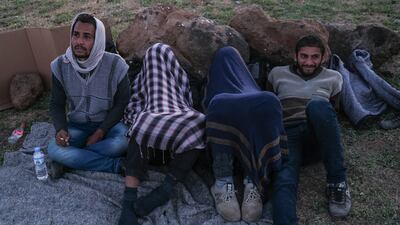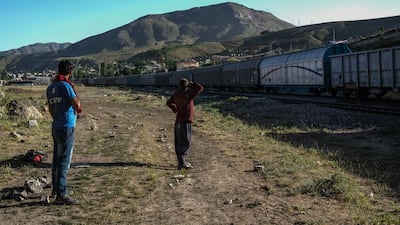For people who have lost a homeland, a home to begin anew from a refugee life is a vital first step. And over the next few months, hundreds of thousands of Afghan refugees will face the challenge of rebuilding their lives.
AirBNB’s offer last week to offer a platform to match people in need with property owners who want to help out with the housing challenge is a more than an amazing gesture. It offers the quick solution of the market to those in need. It takes way the toxic politics of resentment that often poisons refugee acceptance. It also offers Afghans in a new country an identity and an insight into how local systems work.
Technology has a huge role to play in what comes next for many Afghans. When AirBnB chief executive Brian Chesky launched the initiative, he said he hopes the drive “inspires other business leaders to do the same”.
After the flight of millions of people from war-torn Syria and Iraq to the West in 2014-15, lessons have been learned in how to cope with mass population movements.
Politically the perils of getting this moment wrong are clear. The far-right party Alternative fur Deutschland spiked in the polls. Its rise turned Germany into a six-party political system with consequences that now threaten the Christian Democratic Union’s grip on power in next month's election.
Last week, London mayor Sadiq Khan came under fire on GB News, the populist and toxic news network. As the emergency evacuation was at its height, he had opened an emergency property-purchasing scheme to buy up housing for those coming to the UK. For the TV jocks it was time to peddle false concerns over local residents being priced out of the market.
In reality, however, former US secretary of state Colin Powell’s Pottery Barn aphorism about the Iraq war – you broke it, you own it – is and should remain the guiding principle at work for western countries.
Afghans have lived in a media-rich environment for at least the past decade, and, therefore, technologies offer familiarity in strange lands. As more and more come to the UK, Europe and North America, it is vital that these technologies are actively able to help the refugees resettle and start afresh. Fortunately, the past five years have seen the proliferation of apps that are helping new citizens to find their way.
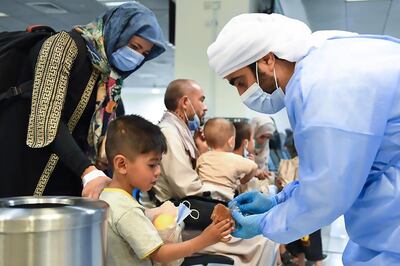
At a local level, initiatives such as the Wycombe Refugee Partnership in England offer technology support for refugees registered in their areas. The scheme shows a different face of the community from the hostility and indifference that often hog the headlines.
The Wycombe Refugee Partnership has a place on the Good Exchange, which is an initiative that seeks to use the techniques of dating apps to match funders and charities. It points out that too many charities spend resources chasing funds but end up not fitting the giving criteria. Some figures suggest £100 million (almost $138m) is spent in the UK alone by small charities on apps every year but 96 per cent of bids are unsuccessful.
The Nextdoor app also has a very effective role to play. One message in my inbox on Friday was from an organiser at Care4Calais, which delivers emergency aid to refugees in the French port city of Calais, with very specific requests for refugees in local hotels. The request included waist-size slim jeans at 30 and 32, clothes for children between the ages of four and 12, and games.
In Germany, the Integreat app is specifically designed to provide local contacts and information in native language options. In Australia, the Shifra app acts as both a medical research project delivering information on the challenges of new communities but also medical advice to the refugees who might otherwise be excluded.
Tikk Talk in Norway provides real-time translators to frontline medical staff dealing with people who present without a shared language.
Of special relevance right now, the Mohajer app gathers together volunteer lawyers, technologists and activists to provide advice and support to refugees. Even in Iran, refugees can submit their own situation reports on everyday experiences or systemic discrimination and get relevant guidance on how to overcome their troubles.
Those waiting in camps in countries such as Jordan can benefit from medical-focused tech solutions such as Doctor-X and the peer-to-peer medical service Iryo.
Education is another area of great progress. The old idea of a penfriend has been given a new spin with Paper Airplanes, which allows people in the US to establish a relationship with refugees as they try to gain knowledge.
With the pandemic seeing a shift to online learning, technology is filling out the benefits for refugees as well. Schemes such as EdSeed in Lebanon, for instance, provides networked education opportunities for refugees.
Employment ranks alongside a home for a swift return to independent living. Artificial Intelligence-based systems, such as Rafiqi, provide opportunities where official job-matching schemes in countries such as Germany and the Netherlands fall short. Other products aim high by establishing innovation laboratories for refugees to get a start in creating their own business ideas.
It is important to point out that, even though it is often criticised for sclerotic structures and processes, the UNHCR, the UN refugee agency, has embedded innovation in its 2018 global compact for refugees.
This couldn't be more useful for the huge numbers of people leaving Afghanistan and who are undergoing tremendous trauma. For them, providing access to opportunity should be the next priority.




